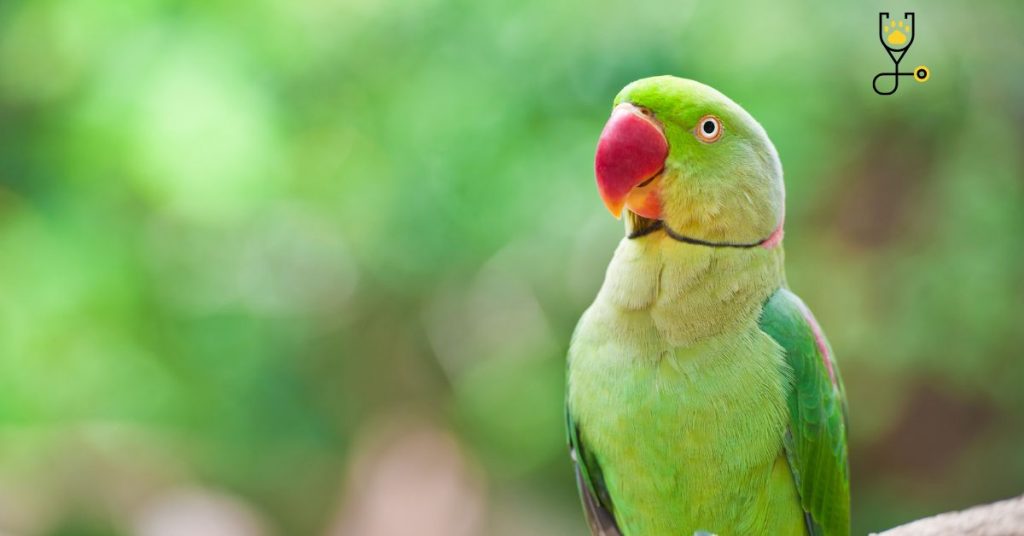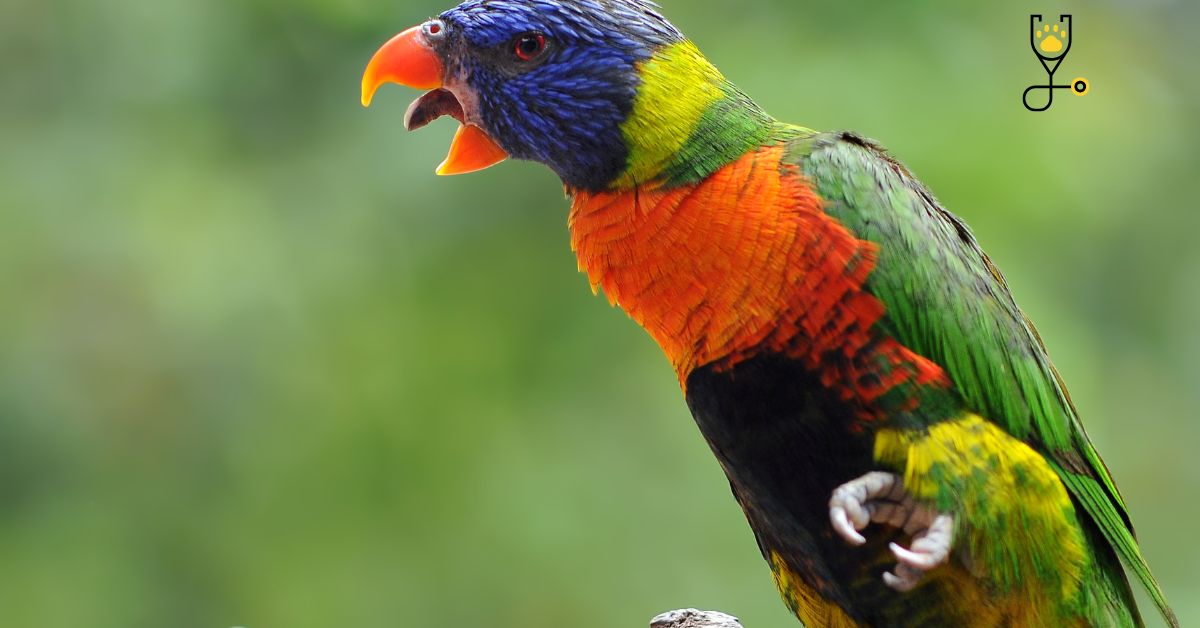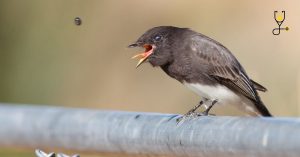Are you hearing strange noises coming from your pet bird’s cage? Do you feel like the sound is piercing through your ears every time it calls out? Trying to figure out why your pet bird is screaming so loud can be an overwhelming task. If this has been a recurring problem, then let us put all of our worries aside and try to understand what could be causing it! In this article, we’ll explore 8 causes behind why your pet bird might be screaming.

Explanation
1. Lack of Attention
Birds require time, care, and attention from their owners in order to feel happy and secure. If your pet bird feels neglected or ignored, it may start screaming out for attention in order to get the acknowledgment it needs.
2. Boredom
Just like humans, birds can become easily bored when there’s not much stimulation or activity around them. If you don’t provide enough mental and physical activities for your pet bird, then it might resort to screaming in order to entertain itself!
3. Territorial Issues
It is instinctual for birds to defend their territories against perceived threats by making loud noises such as screams, squawks, and screeches. Your pet bird may be screaming out of fear or protectiveness when it senses danger nearby.
4. Frustration
Your pet bird may have difficulty with something and start screaming out of frustration. This could include not being able to reach a toy or getting stuck in its cage. If your pet bird is unable to solve its problem, it can become quite distressed and scream loudly to express itself.
Learn more: Some Behavior Problems of Pet Birds
5. Fear
Being scared is another common cause behind why your pet bird might be screaming. Loud noises, strangers entering the room, and sudden movements can all make birds feel threatened and insecure, causing them to shriek in fear.
6. Health Issues
Medical problems such as infections, illnesses, parasites, or malnutrition can also make birds very loud and vocalize out of discomfort. If you suspect that your pet bird might be sick, it’s important to take him/her to the vet for an examination.
7. Lack of Sleep
Birds need a good amount of sleep in order to remain healthy and active. If your pet bird is not getting enough rest at night, then it might start screaming during the day out of fatigue or exhaustion.
8. Mating Season
During mating season, birds become incredibly loud as they call out to other potential mates in the area. This can lead to a lot of screeching and squawking from your pet bird as it calls out for potential partners!
9. Attention Seeking
Birds are social animals, so they crave interaction and attention from their owner. If your pet bird feels like it isn’t getting enough love and attention, it may start screaming out in an effort to get you to pay more attention to it.
10. Sex Hormones
During the breeding season, birds experience a surge of hormones that can make them act differently than usual. This could include increased vocalization or territorial behavior, which might lead to your pet bird screaming out of excitement or agitation.

11. Separation Anxiety
Just like humans, birds can become very attached to their owners and feel distressed when apart from them for too long. If your pet bird is away from you for extended periods of time and not given enough stimulation or interaction, it might start screaming out of loneliness or anxiety.
12. Resolving Conflicts
f your pet bird lives in a multi-bird household, then it might be screaming out in order to resolve any conflicts between the birds. This could include territorial disputes, competition for food or attention, and other issues that need to be addressed.
13. New Environment
If you recently brought your pet bird home or moved into a new environment, then it may scream out of confusion and stress as it adjusts to its new surroundings. It’s important to make sure that you give your pet bird plenty of time and space to get used to its new home before introducing other creatures or people into the mix.
14. Stress
Just like humans, birds can experience stress. This could be due to changes in their environment, external noises, or other factors that can cause them to become overwhelmed and start screaming out of fear or anxiety.
Also read: 10 Reasons Why Do Birds Pluck Their Feathers?
15. Boredom
Like any living creature, birds need adequate stimulation in order to remain content and healthy. If your pet bird is left alone for extended periods of time with nothing to do, it might start screaming out of boredom or frustration. Make sure you provide plenty of toys and activities for your pet bird so that it doesn’t feel neglected.
Best Remedies for a Screaming Bird
1. Increase Stimulation
Make sure that your pet bird has plenty of toys, perches, and activities to keep it occupied and entertained. This will help reduce its stress levels and limit its need to scream out in frustration or boredom.
2. Create Proper Environments
Ensure that the environment you create for your pet bird is suitable for its needs. Making sure that the habitat is peaceful and quiet can help minimize screaming episodes as well as optimize comfort levels for your feathered friend.
3. Establish Routines
A consistent daily routine can help provide structure for your pet bird, which can go a long way toward reducing anxiety levels and excessive vocalizing. Figure out what times are best suited for feeding, playtime, and other activities so that your pet bird will always feel secure.
4. Provide Attention
Make sure to give your pet bird plenty of attention to help reduce its anxiety levels. This can include sitting with it for a few moments each day or offering special treats as rewards for good behavior.
5. Seek Medical Help
If the problem persists despite all of your efforts, then it might be best to seek medical help from an avian veterinarian in order to rule out any underlying health issues that could be causing the screaming episodes.
Conclusion
The well-being of your pet bird is of the utmost importance, and it’s essential to take the necessary steps to ensure that it is happy and healthy. Understanding why your pet bird might be screaming is an important part of this process, as this can help you identify any underlying issues that need to be addressed. Implementing the remedies outlined in this article into its daily routine can go a long way towards helping you care for your feathered friend and keep it from excessive vocalizing! With patience and dedication, you can create a warm, safe environment for your pet bird so that it can thrive and experience a fulfilling life.
Frequently Asked Questions
Q: What are some common reasons why birds scream?
A: Common reasons why birds scream include territoriality, seeking food or attention, stress, boredom, and adjusting to a new environment.
Q: How can I get my pet bird to stop screaming?
A: You can try increasing stimulation in its environment, creating proper environments for it, establishing daily routines, providing attention, and seeking medical help if necessary. By taking these steps you can help ensure that your pet bird remains happy and healthy!
Q: Is it normal for pet birds to scream?
A: Yes, as long as the screaming is not excessive or disruptive. Some vocalizing from pet birds is perfectly normal and should not be a cause for concern. However, if the screaming persists or is too loud and disruptive, then it could be a sign of distress and you should consider seeking medical help from an avian veterinarian.
Q: How can I prevent my pet bird from screaming excessively?
A: The best way to prevent excessive screaming in your pet bird is to provide plenty of stimulation in its environment. Make sure that there are plenty of toys, perches, and activities available for your feathered friend so that it doesn’t get bored or frustrating. Additionally, providing attention, establishing routines, creating a tranquil environment, and seeking medical help if necessary can all help reduce vocalizing levels in your pet bird.
Q: What should I do if my pet bird is screaming excessively?
A: If your pet bird is screaming excessively, then it might be a sign of distress and you should consider seeking medical help from an avian veterinarian. In addition to this, make sure that there are plenty of toys, perches, and activities available for your feathered friend as well as providing attention, establishing routines, and creating a tranquil environment to help reduce vocalizing levels in your pet bird.








